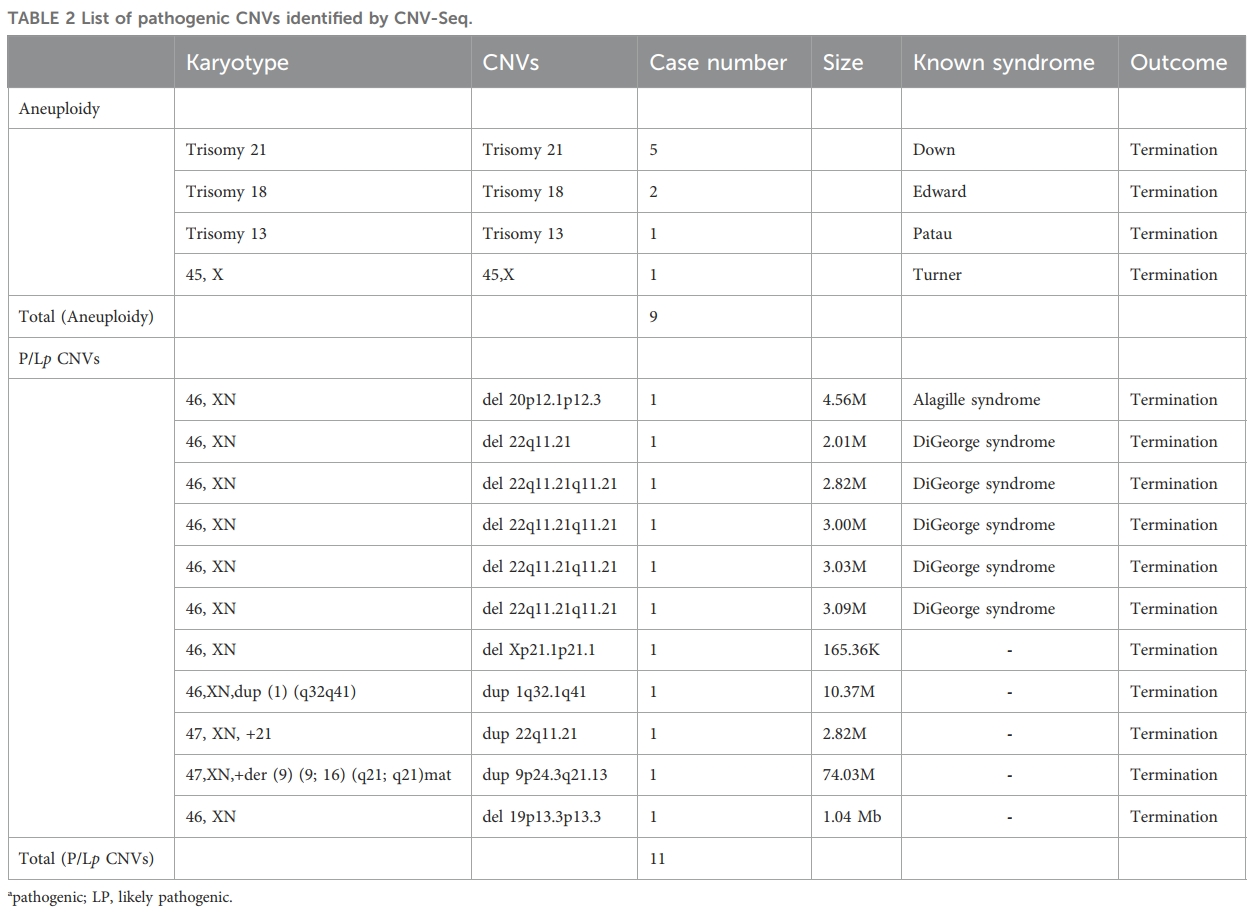Genetic Screening Revolutionizes Prenatal Diagnosis of Congenital Heart Disease | BGI Insight
2024-09-03

A recent study published in Frontiers in Genetics demonstrates that combining copy number variants sequencing (CNV-seq) and whole exome sequencing (WES) is effective in detecting congenital heart disease (CHD). CHDs are the most prevalent birth defects and a leading cause of newborn mortality, often linked to pathogenic copy number variations (pCNVs).
BGI Genomics and the Prenatal Diagnosis Center of the Women and Children’s Hospital of Xiamen University jointly conducted the research.
The research identified genes contributing to CHD, including TMEM67, PLD1, ANKRD11, and PNKP. Supported by statistical evidence, the researchers advocate for the inclusion of advanced genomic technologies like CNV-seq and WES in routine prenatal diagnoses to increase the diagnostic yield of causal genetic variants associated with CHDs.
Complex Genetic Nature of CHD
Between January 2020 and December 2022, researchers conducted invasive prenatal diagnoses on 118 pregnant women suspected of carrying fetuses with CHD. The study cohort consisted of 68.6% isolated CHDs, and 31.4% non-isolated CHDs, where CHD was accompanied by other organ abnormalities. The result indicates that non-isolated CHD cases showed a higher frequency of detectable chromosomal abnormalities, underscoring the complex genetic nature of these cases and the importance of comprehensive genetic testing.

Among the cases, simple CHDs (involving a single heart defect) were found in 23.7% of fetuses, while 76.3% had complex CHDs (involving multiple heart defects). The data showed that complex CHDs were particularly common, with CNV-seq testing detecting significant chromosomal abnormalities in 16.9% of cases. This included 7.6% aneuploidies and 9.3% other significant chromosomal variants, such as the 22q11.2 deletion syndrome (DiGeorge syndrome). Moreover, when CNV-seq didn’t detect chromosomal abnormalities, WES was able to increase the detection rate by 14.8%.
CNV-seq and WES Boost Detection Rate
The study also compared the effectiveness of different diagnostic methods. CNV sequencing (CNV-seq ) demonstrated a sensitivity of 95% and a specificity of 100% for detecting pathogenic CNVs, outperforming traditional karyotyping by 6.7%. The combination of CNV-seq and WES proved particularly effective, boosting the overall detection rate for CHDs.

In four cases, WES identified specific genetic variants, improving the diagnostic success rate to 14.8% for CHD fetuses that had no chromosomal abnormalities or pathogenic CNVs. These findings included one missense mutation, one splicing mutation, and three nonsense mutations in genes like TMEM67, PLD1, ANKRD11, and PNKP. Additionally, variants of uncertain significance (VUS) were found in three fetuses, all missense variants with autosomal dominant inheritance. The study also noted that the termination rate was higher in cases of non-isolated CHD (94.6%) compared to isolated CHD (72.8%).
The first author of the study, Dr. Shao Di, clinical research expert from BGI Genomics, commented, “By integrating CNV-Seq and WES, clinicians can achieve a more thorough genetic assessment, capturing both large structural variations and small genetic mutations. This dual approach enhances diagnostic accuracy, enabling early and precise identification of genetic anomalies associated with CHD.”
Dr. Shao further added, “Consequently, it facilitates informed decision-making for expectant parents and healthcare providers, allowing for better prenatal management and preparation for potential interventions post-birth. Additionally, this combined method contributes to the broader understanding of the genetic etiology of CHD, potentially guiding future research and therapeutic strategies.”
This research underscores the value of integrating CNV-seq and WES in prenatal diagnostics. While ultrasound remains essential for spotting structural abnormalities, it falls short in detecting genetic issues at the molecular level. By combining CNV analysis, which can catch small chromosomal changes, and WES, which can identify single gene mutations, this dual approach offers a more comprehensive assessment, enhancing diagnostic accuracy for CHDs by covering both structural and molecular aspects.
About Clinical Whole Exome Sequencing (cWES)
BGI Genomics' cWES examines the DNA sequence of over 180,000 exons across 22,000 genes, screening for more than 4000 monogenic diseases. Search for genes of interest and associated mutations, and confirm whether the Xome test is suitable for your requirements.
About BGI Genomics
BGI Genomics, headquartered in Shenzhen, China, is the world's leading integrated solutions provider of precision medicine. Its services cover more than 100 countries and regions, involving more than 2,300 medical institutions and 10,000 employees worldwide. In July 2017, as a subsidiary of BGI Group, BGI Genomics (300676.SZ) officially began trading on the Shenzhen Stock Exchange.
Read More:
Research Found CARS E795V Mutation Causing Inherited Parkinson's Disease
Study Reveals How Fetal Ear Shape Could Signal Rare Genetic Condition
How Clinical Whole Exome Sequencing Helped 3-Year-Old Kosta: Patient's Voice